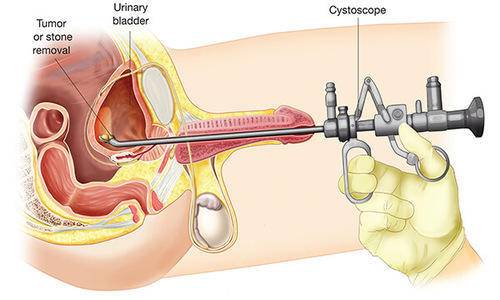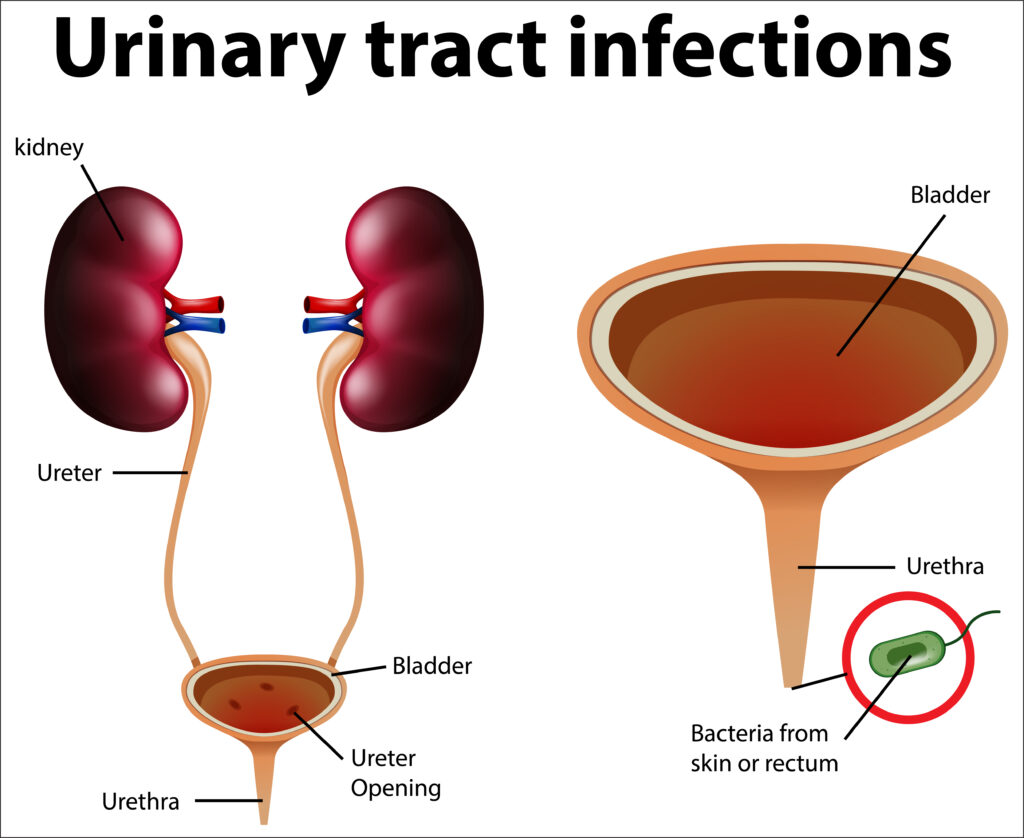Laser Stone and Prostate Treatment
Laser Stone and Prostate Treatment in Kondhwa, Camp, Hadapsar – Dr. Shams A. Iqbal
What are the reasons for Laser Stone Treatment?
Kidney stones can get stuck in the urinary tract at any point, including the kidney and ureter. The ureter is a tube that connects the kidneys to the bladder and transports urine. If a stone becomes trapped in the ureter, it can obstruct it and cause urine to back up into the kidney. They can also be quite painful and infected. Dr. Shams A. Iqbal provides Laser Stone and Prostate Treatment in Kondhwa, Camp, Hadapsar and identifies and treats problems with the genitourinary and urogenital systems.
The kidney stone is broken up using laser lithotripsy so that it may flow through the ureter. The surgeon will either use a specific basket to remove the fragments or leave them in situ, where they will travel from the ureter to the bladder and finally out of the body with the urine.
If alternative non-surgical therapies have failed or if the kidney stones are:
- Resulting in bleeding or tissue injury in the surrounding area
- Too large to go through
- Shape is irregular

What is the procedure for Laser Stone Treatment?
It is a minimally invasive treatment that does not require anybody incisions. To access your ureter and kidney, a tiny illuminated tool (ureteroscope) is inserted into your urethra and bladder while you are unconscious.
Once the stone has been identified, Holmium energy is sent through a laser fiber to break up your kidney stones. The surgeon uses a tiny basket to remove some particles through the urethra, and smaller particles can be removed through urine later. The surgeon may also utilize a high-powered holmium laser with high-frequency emissions to “dust” the stones into a fine powder. After surgery, you might pass the tiny particles in your urine. By modifying the pulse utilizing the Moses effect, an even more effective means of propagating the holmium laser may be achieved, perhaps resulting in more efficient stone dusting or fragmentation.
A stent will most likely be inserted between the kidney and the urethra by the surgeon. This aids in the healing process and allows tiny stone pieces to flow through more readily. The most essential feature of this stent is that it permits your kidney to drain as it heals. A week following surgery, the stent is removed. Depending on the size and quantity of kidney stones, surgery usually takes less than an hour. The Moses effect paired with the dusting approach may reduce the need to remove stones with a basket, reducing the necessity for a stent.
Prostate Laser Treatment:
BPH (benign prostatic hyperplasia) is a disease in which an enlarged prostate causes moderate to severe urine problems. Prostate laser surgery is used to treat these symptoms (BPH).
During prostate laser surgery, your doctor inserts a scope into the tube that transports pee from your bladder via the tip of your penis (urethra). The prostate encompasses the urethra. The scope is passed through with a laser. The laser emits light that is utilized to reduce or eliminate extra tissue that is obstructing urine flow and plugging the urethra.
To create accurate and powerful heat, all lasers employ focused light. Excess prostate tissue is removed by laser surgery in the following ways:
- The laser eliminates away any excess tissue.
- Excess prostate tissue is removed with a laser.
Prostate laser surgery comes in a variety of forms, including:
- Prostate vaporization using photoselective light (PVP). To enlarge the urinary channel, a laser is utilized to burn away (vaporize) extra prostate tissue.
- Ablation of the prostate using a holmium laser (HoLAP). This technique is identical to PVP, except that the extra prostate tissue is melted away (vaporized) using a different type of laser.
- The prostate is enucleated using a holmium laser (HoLEP). The extra tissue that is obstructing the urethra is sliced and removed with the laser. After that, a morcellator is used to slice the prostate tissue into little pieces that may be removed easily.
Why is Prostate Laser Treatment Done?
BPH causes urinary problems, which can be alleviated by prostate laser surgery. The symptoms of urine incontinence are as previously stated.
- Urinary hesitation is a condition in which a person is unable to pass urine
- Increased frequency of urine, particularly during The sensation of a full bladder after each urination
- Difficulty in starting urination
- Urination is frequent
Prostate laser surgery can also be used to address a few problems that might occur as a result of an enlarged prostate, as listed below.
- Infection of the urinary tract
- Damage to the kidneys or bladder
- Urine incontinence and urinary retention are both symptoms of urinary incontinence.
- Stones in the bladder
- Urine with blood
Other methods for treating BPH are also available; however, prostate laser surgery offers a number of benefits over the alternatives (open prostatectomy and transurethral resection of the prostate). Some of the advantages are as follows:
- Lower Bleeding Risk: For individuals with a bleeding issue, Prostrate Laser Surgery is the best alternative.
- Stay in the hospital as few as possible: Patients may only need to stay in the hospital for one day for prostate laser surgery, but other treatments may necessitate a longer stay.
- Recovery time is reduced: Patients can recover rapidly since the Prostrate laser surgery does not involve any cuts outside of the patient’s body.
- Immediate results: Following the laser surgical treatment, the patient’s condition improves instantly.
- There are no heart-related side effects.

What are the Risks of Prostate Laser Treatment?
In comparison to other conventional operations, prostate laser surgery has less significant long-term consequences. The following are some of the adverse effects and problems associated with prostate laser surgery.
- Temporary inability to urinate: Because a tube is placed into the penis to transport urine out of the bladder, the patient may have trouble urinating soon after the surgery.
- Urinary tract infection is a typical side effect of any prostate treatment that involves the placement of a catheter. Antibiotics may be required to treat the infections.
- Narrowing of the urethra: After prostate surgery, patients may develop scars on the inside of their urethra, which can restrict urine flow (Stricture Urethra), necessitating further treatment.
- Dry orgasm or retrograde ejaculation: Prostate surgery can induce dry orgasm or retrograde ejaculation, which implies that during sexual climax, the semen enters the bladder rather than the penis. This is not damaging to the patient, but it will prohibit him from becoming a parent.
- Erectile problems: When compared to other standard operations, prostate laser surgery has a low risk of erectile dysfunction.
- Follow-up treatment: After prostate laser surgery, some individuals may require follow-up treatment since not all tissues are eliminated, and the prostate gland may develop again.
- Urinary incontinence: Urine leaking is uncontrollable.
Why Choose Dr. Shams A. Iqbal?
Dr. Shams A. Iqbal provides Laser Stone and Prostate Treatment in Kondhwa, Camp, Hadapsar, and is highly experienced in providing this treatment which is used to treat urinary problems that are caused by an enlarged prostate.

Dr. Shams Iqbal is a Urologist in Kondhwa, Camp, Hadapsar, and has experience of 20 years in this field. Dr. Shams Iqbal practices at Gultekdi Nursing Home and Lithotripsy Centre in Gultekdi, Pune, and KEM Hospital in Rasta Peth, Pune. He completed MBBS from B J Medical College, Pune in 1996 and DNB – Urology/Genito – Urinary Surgery from the National Board of Education, New Delhi in 2002. He is a member of the Indian Medical Association (IMA) and Maharastra Medical Council.
Dr. Shams Iqbal (Gultekdi Nursing Home And Lithotripsy Center) in Pune offers a host of treatments that cater to the various ailments faced by their male and female patients. A few of the ailments treated here are Urinary Tract Infections (UTI), Incontinence, Male Infertility, Kidney Diseases, Renal Transplantation, Bladder Prolapse, Interstitial Cystitis Or Painful Bladder Syndrome, Kidney and Ureteral Stones, Urethral Stricture, and Paediatric Urological Disorders to name a few.
